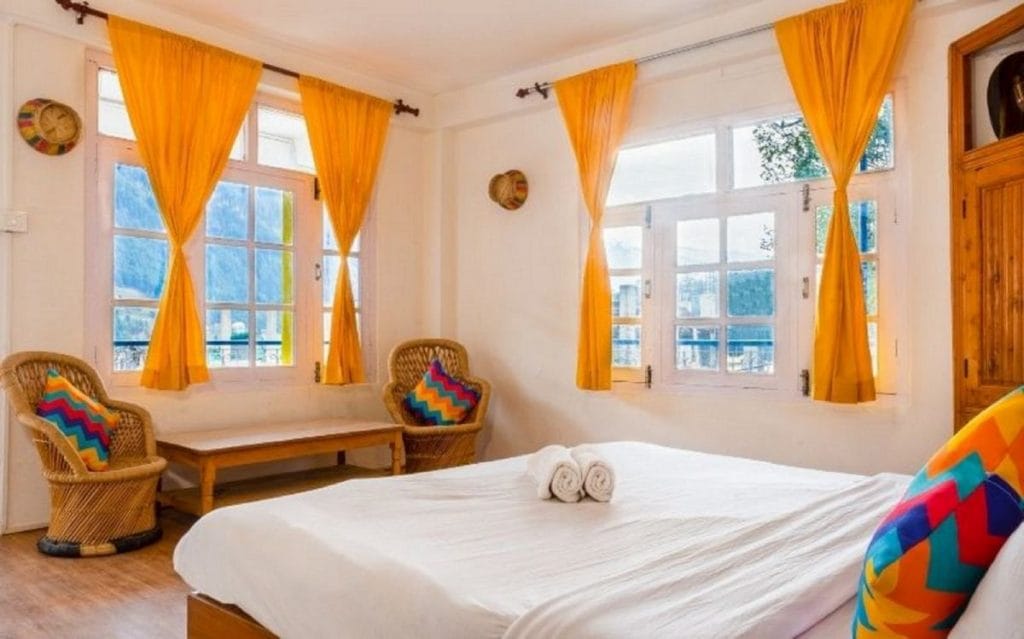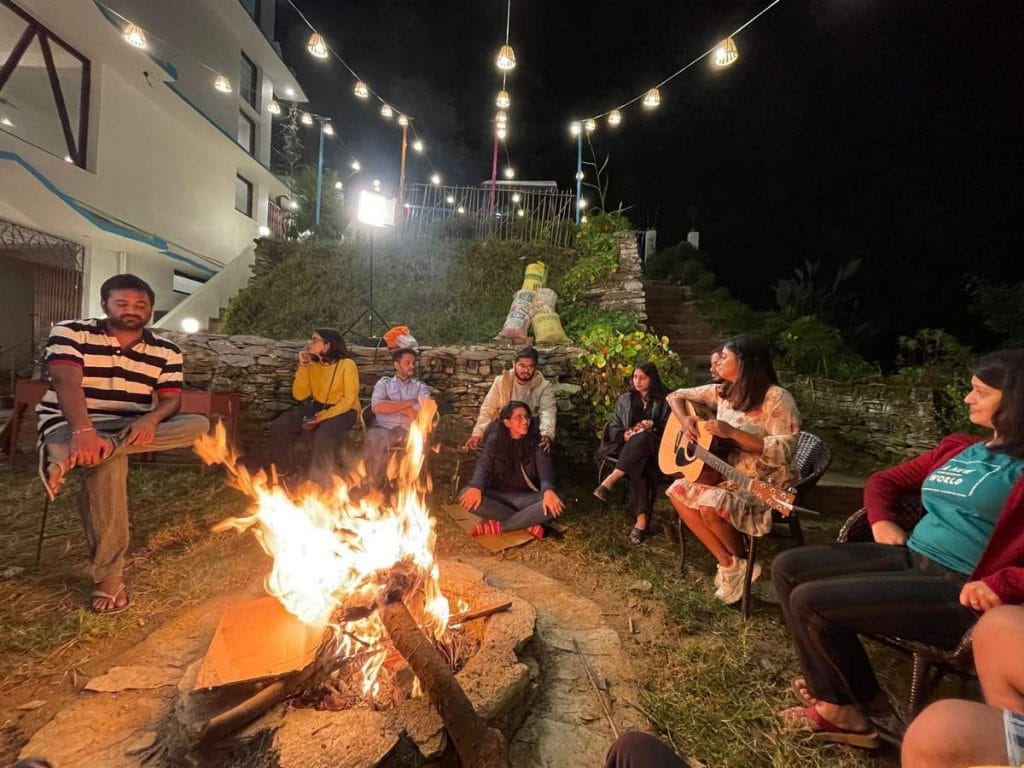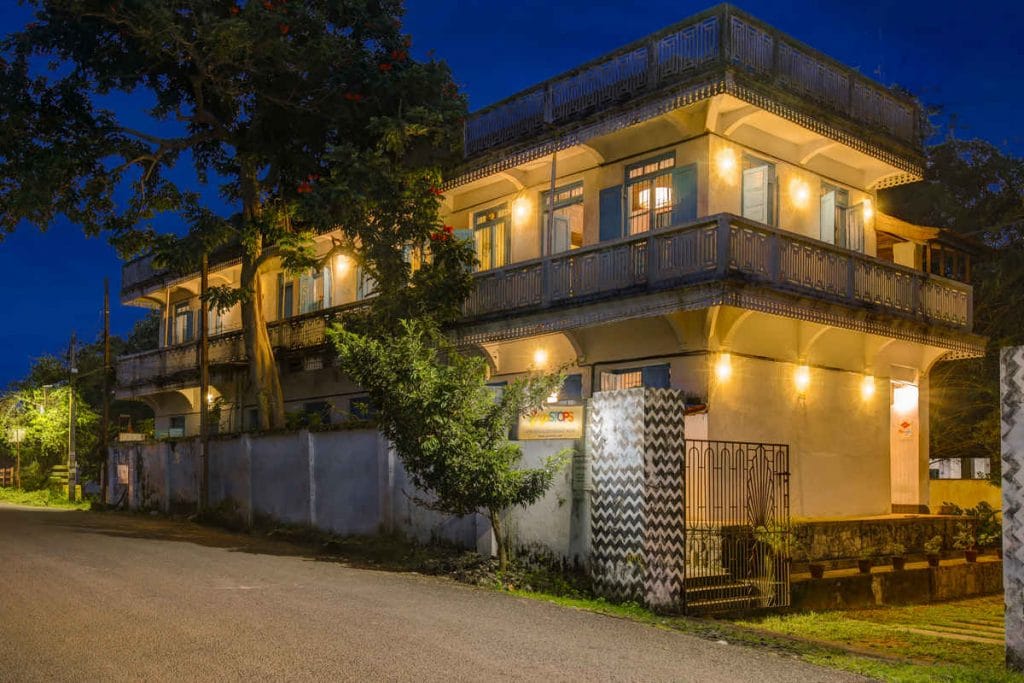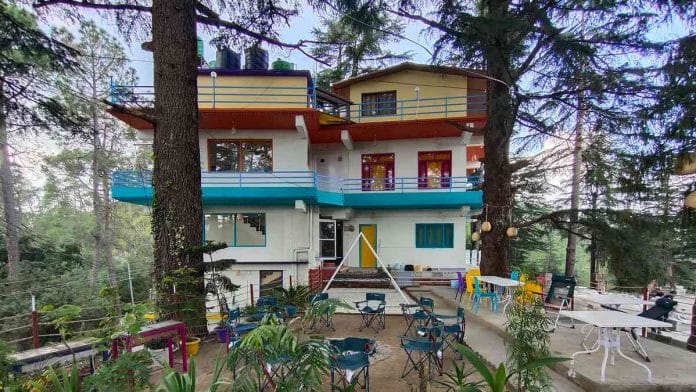New Delhi: Young Indians want to travel. They are keen to explore domestic destinations. And they want to do it on the cheap. The signs have been encouraging enough for one travel start-up to lay its bets on India’s nascent ‘backpacker culture’ — leisure travel characterised by shoestring budgets and dorm stays.
The backpacker hostel brand goSTOPS, which has been around since 2014, is gearing up to expand from 2,500 beds in 32 hostels currently, to 10,000 beds in 100 hostels by June next year, with an eye on Gen-Z travellers — people ranging in age from 18 to 30.
With prices starting at about Rs 500 a night, and with dorms housed in well-kept buildings with colourful décor (think murals and funky throw cushions), these hostels are more ‘flashpacker’ than ‘backpacker’. They also generally have private rooms on offer.

The brand’s properties range from a smart townhouse in Jaipur, to a stately (ish) old building in Alleppey, to a hillside cottage in Leh, among many others.
While Covid lockdowns dealt a blow to the hospitality industry, including hostels, the future is bright, according to goSTOPS co-founder and CEO Pallavi Agarwal.
“There were nearly 700 hostels in India pre-pandemic and the number has gone down to 400 now. But there are 370 million youngsters to cater to in India — the opportunity to grow backpacker hostels is huge,” Agarwal said in an interaction with ThePrint.
Since it was founded, the company says it has managed to raise $4 million from micro funds and angel investors.
A few surveys have drawn attention to Indians’ desire to travel as well as their preferences for easy and affordable trips.
For instance, an October 2021 survey of 1,400 smartphone users by the lockscreen content firm Glance found that Indians in the 18-30 age group are the most eager to travel. At the time of the survey, as many as 56 per cent of respondents were planning a trip.
Domestic destinations were high on people’s travel wishlists, and there was reportedly a “spike” in the share of people (32 per cent) wanting to try homestays and “unique” accommodations.
Further, Booking.com’s new ‘APAC travel confidence index’, which polled 11,000 people from 11 countries earlier this year, found that Indians were the most confident travellers in the Asia-Pacific region, but with a preference for domestic trips. Fear of Covid did not figure high on the list of zeal-dampeners, but changing border regulations, high costs, and quarantine did.
Also Read: Why you must travel to Arunachal before tourism growth makes it another Manali or Mussoorie
Where do hostels fit in?
The younger population’s interest in travel presents a huge opportunity to transform the travel industry in India, Agarwal believes.
After opening their first hostel in Varanasi, goSTOPS has set up hostels at over 30 destinations in India and claims to have hosted over 500,000 travellers so far.
Unlike a traditional hotel, a backpacker hostel focuses on community living, with dormitories and common spaces where people can interact with each other over boardgames, bonfires, and suchlike, depending on the destination and season.

A trip to Europe in 2011 gave Agarwal the idea of promoting hostel culture in India.
“What we are doing is nothing new, it’s something that’s already being done globally. Just that in India, it could never grow and that’s what we are focusing on,” she said.
The company acquires hotels and homes and then converts them into hostels with dormitories and common areas, which usually feature a TV area, a cafe, gaming zone, and workspace.
Unlike tourism companies that work as aggregators and let the owners run the hostel or homestay, goSTOPS oversees the management of its properties with the help of local staff.
Hostels as a concept appeal to many young people who are looking to not just save money but make friends while travelling.
Siddhartha Bhardwaj, a 24-year-old who works in Bengaluru, said that he has preferred to stay in hostels for years.
“I mostly travel solo or with my friends, and hostels are the best to stay in. That way I save a lot of money and take up more trips in a year,” he said.
Some women also feel safer staying in community spaces when they are travelling alone. “As a solo woman traveller, I feel it’s best for me to stay in hostels. They provide a sense of security,” 23-year-old Shivani Singh, who works in Mumbai, said.

‘Stay-for-free’ opportunities
In a bid to popularise hostel-living, Agarwal said her company has launched an initiative where young people can enjoy a free month-long stay at a hostel in return for “volunteer” work.
“There is a concept of a break year in Europe, where young people travel for a year. Since there is no such thing in India, we decided to introduce a break month. This provides an opportunity for young people to stay for free at our hostels,” Agarwal said.
That said, these guests are expected to volunteer to earn their keep in whichever way they best can — whether its hosting ice-breaking sessions like game nights, or taking yoga classes, or leading treks for fellow guests.
(Edited by Asavari Singh)
Also Read: Lambasingi is sold as the Kashmir of South India, but tribals have had enough of tourists






